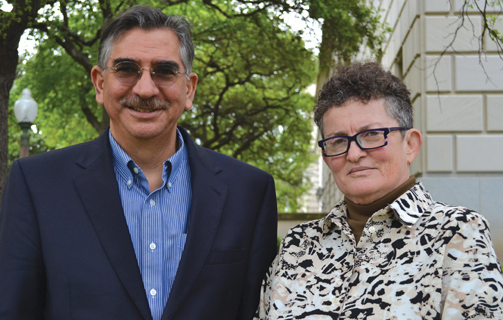The College of Liberal Arts has a long and proud tradition of preparing its graduate students to teach and conduct research in the humanities at colleges and universities around the world, and we are particularly proud of our many placements in the nation’s top institutions.
However, over the past two decades academic positions in the humanities have declined, leaving a number of recent graduates struggling in a difficult job market. But changes in today’s technological, socio-cultural and political environments have created a new demand for humanities-trained doctoral holders to address a broader set of challenges, questions and issues in our rapidly evolving workplaces.
Our college recently received a $2 million grant from the Andrew W. Mellon Foundation to provide specialized training and research skills to doctoral students in the humanities and prepare them for opportunities in this new economy. The four-and-a-half-year grant supports The Engaged Scholar Initiative: A Texas Model, in which doctoral students will work in interdisciplinary, collaborative clusters with faculty, undergraduate students and others to gain experience in areas beyond their specific academic disciplines. The initiative condenses time to the Ph.D. and reshapes the training of scholars in the humanities by providing tools, research experiences and funding that allow students to broaden their career options to include a range of academic and non-academic careers.
Richard Flores, senior associate dean and professor in the Department of Anthropology, and Esther Raizen, senior associate dean and associate professor in the Department of Middle Eastern Studies, will lead the program, which will welcome its first class of graduate fellows this summer.
The Mellon Foundation has also given a boost to our Latin American Studies and Collections with a $700,000 grant to LLILAS Benson for Cultivating a Latin American Post-Custodial Archival Praxis, a project focusing on vulnerable human rights documentation from Latin America that will be administered by the UT Libraries. This builds on a previous Mellon Foundation project through which LLILAS Benson collaborated with archives in Central America in the creation of Latin American Digital Initiatives, a repository that provides access to unique archival collections.
Both of these initiatives support innovative, collaborative and forward-thinking work in the humanities that in many ways represent the future of learning at The University of Texas at Austin.

Randy L. Diehl, Dean
David Bruton, Jr. Regents Chair in Liberal Arts

